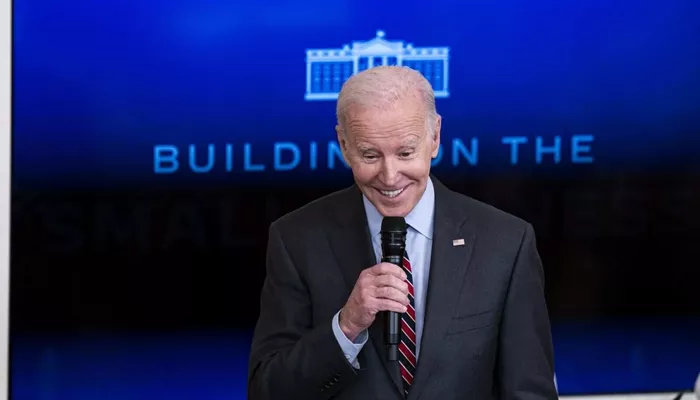President Joe Biden joked about being cautious not to mispronounce the name of a new monument he designated to honor Native American tribes – only to mispronounce it himself.
On Tuesday, Biden designated two California sites as national monuments to honor Native American tribes and protect landscapes from mining and development. The announcement was made at a White House event, a week later than originally planned due to wildfires. Biden had arrived in California on January 6 but only made it to Los Angeles before high winds, which fueled wildfires, forced the event’s cancellation.
Instead of speaking in the Eastern Coachella Valley, as initially planned, Biden addressed the crowd beside screens showing desert landscapes, mountains, and wildlife. “I was hoping we could do this in place,” he said. “This is as close as we could get.”
Biden officially established the Chuckwalla National Monument in Southern California, near Joshua Tree National Park, and the Sáttítla Highlands National Monument in Northern California.
While joking about possibly mispronouncing Sáttítla, Biden still stumbled over the name. “The second national monument I’m designating today is… This is important. I mispronounced it the first time,” he said before mispronouncing it again. When signing the official documents, he simply referred to the site as the “highlands” monument to avoid another attempt.
These designations are part of Biden’s broader goal to conserve 30 percent of U.S. lands and waters by 2030. This initiative follows his recent ban on new offshore oil and gas drilling in most U.S. coastal waters, including California.
The Chuckwalla site spans 624,000 acres, while the Sáttítla monument covers about 225,000 acres. Both will be protected from oil, gas, mining, and other development.
The Chuckwalla site features natural wonders like Painted Canyon in Mecca Hills and Alligator Rock, home to over 50 rare species, including desert bighorn sheep and the Chuckwalla lizard. Biden shared that he often took his children to national monuments to “witness the majesty, the beauty,” calling them “the heart and soul of this nation.”
Native American tribes, such as the Torres Martinez Desert Cahuilla Indians and the Fort Yuma Quechan Tribe, have long advocated for these protections to preserve sacred lands from development. Supporters argue that safeguarding these sites is essential for maintaining cultural heritage and environmental health.
“Protecting our nation’s public lands has been vital to preserving U.S. heritage and history,” said Janessa Goldbeck, CEO of the Vet Voice Foundation.
Goldbeck also highlighted the land’s military importance as a former training area.
However, some critics have raised concerns, arguing that creating these monuments would impose regulations that conflict with existing disaster relief plans. The American Forest Resource Council voiced its concerns in a letter to Biden, stating, “We cannot identify a successful example of a national monument created at this scale that has resulted in timely, proactive action to address our wildfire and forest health crises.”
Conservatives have also criticized the move, calling it an overreach of the Antiquities Act of 1906. The act allows for the protection of cultural and natural resources of historic or scientific interest on federal lands, according to the National Park Service.
Last year, Biden also designated the Baaj Nwaavjo I’tah Kukveni monument in Arizona, conserving nearly 1 million acres around the Grand Canyon. This was the fifth monument Biden established during his presidency using the Antiquities Act.

